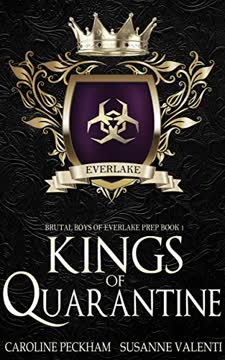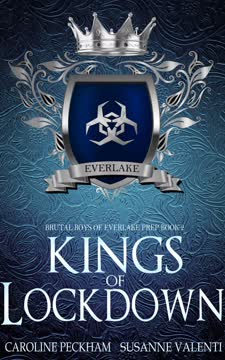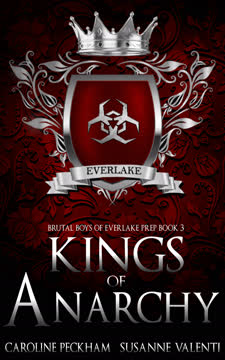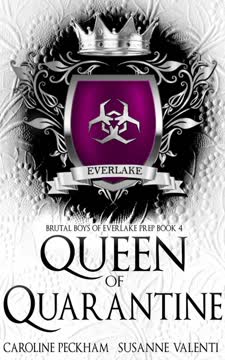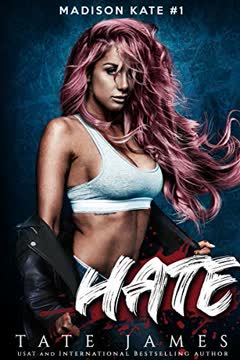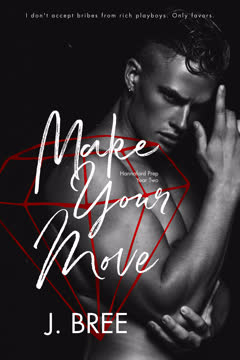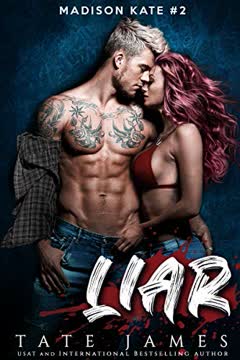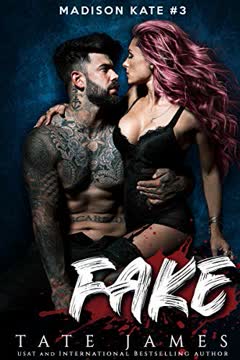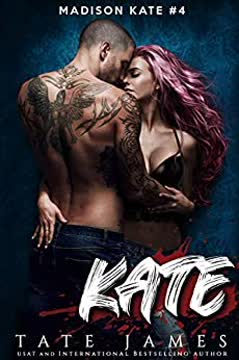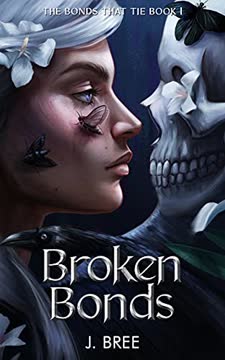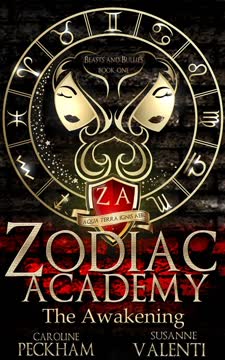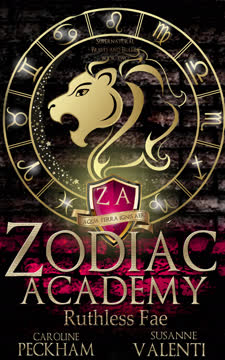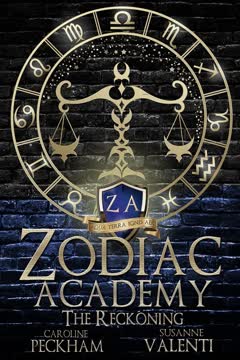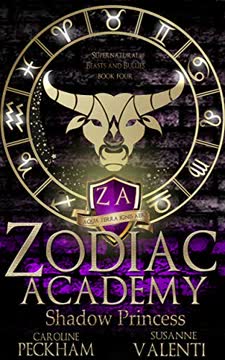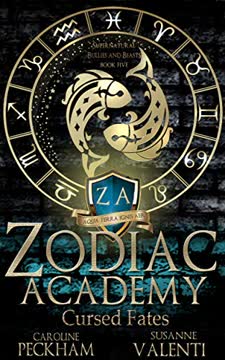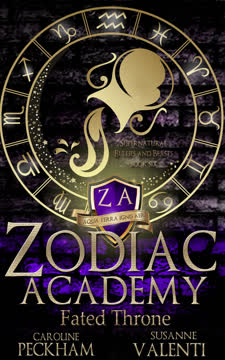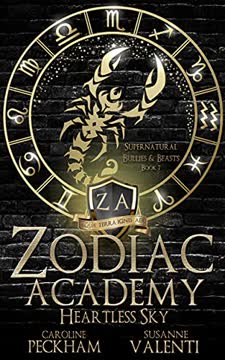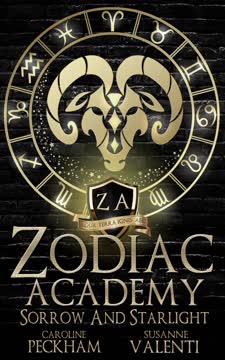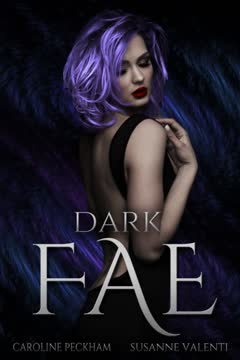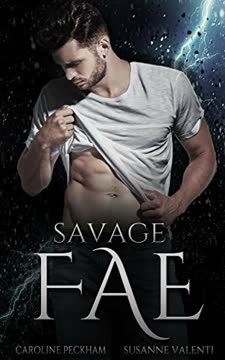Plot Summary
Arrival at Everlake's Gates
Tatum Rivers arrives at Everlake Preparatory, a remote, elite boarding school, as the world reels from the deadly Hades Virus. Her father, a doomsday-obsessed virologist, leaves her with a gun for protection, hinting at dangers beyond the pandemic. Tatum, used to drifting and avoiding attachments, is thrust into a gothic campus ruled by privilege and secrets. Her first encounters—especially with the magnetic, dangerous Blake Bowman—signal that Everlake is no ordinary school. The campus is beautiful but isolating, and Tatum's sense of unease grows as she meets the infamous Night Keepers, the trio who rule the student body with fear and charisma.
The Night Keepers' Reign
Blake Bowman, Saint Memphis, and Kyan Roscoe—known as the Night Keepers—are the unchallenged rulers of Everlake. Each wields power in his own way: Blake with charm and violence, Saint with icy control, and Kyan with raw, unpredictable aggression. Their influence is absolute, and the school's social order revolves around their whims. Tatum quickly learns that to survive, she must navigate their games, which blend seduction, humiliation, and psychological warfare. The Night Keepers' legend, rooted in local myth, is both a warning and a promise: those who cross them become the Unspeakables, outcasts forced into servitude.
Initiation by Fire
Tatum is targeted for initiation at the Night Keepers' infamous party. The ritual is both a hazing and a spectacle, designed to break her spirit and bind her to their rule. Forced to swim across a freezing lake, she endures public humiliation and sexualized dares, all under the watchful eyes of the kings and their followers. Despite the ordeal, Tatum's resilience and wit catch the attention of the Night Keepers, especially Blake, who is both drawn to and threatened by her defiance. The initiation marks the beginning of her transformation from outsider to obsession.
Bound by Blood and Oath
After her initiation, Tatum is forced to swear an oath on the sacred stone, a symbolic act that binds her to the Night Keepers as their property—mind, body, and soul. The rules are clear: she must obey their every command, endure their punishments, and accept their control over every aspect of her life, from her clothes to her friends. Yet, even as she submits outwardly, Tatum's inner fire refuses to be extinguished. The Night Keepers' cruelty is matched only by their fascination with her, and the lines between tormentor and protector begin to blur.
The Unspeakables' Shadow
Tatum is relegated to the Unspeakables, a group of students who have fallen afoul of the Night Keepers and now live as pariahs. Here, she finds unlikely allies and witnesses the full extent of the kings' power. The Unspeakables' stories are cautionary tales, each a reminder of what happens to those who resist. Yet, Tatum's presence among them sparks hope and rebellion. She begins to plot her escape, forging secret alliances and gathering information on the Night Keepers' weaknesses, even as she is watched at every turn.
Games of Power and Pain
Life under the Night Keepers is a constant game of dominance, submission, and psychological torment. Tatum is subjected to humiliations, forced obedience, and sexualized punishments, but she learns to weaponize her own allure and intelligence. The kings' interest in her deepens, especially as she plays them against each other, exploiting the cracks in their unity. Forbidden desires simmer beneath the surface, and the power dynamics shift as Tatum becomes both victim and temptress, challenging the very foundation of the Night Keepers' rule.
The Quarantine Lockdown
As the Hades Virus spreads, Everlake is placed under strict lockdown. The school becomes a pressure cooker, with supplies dwindling and tensions rising. The Night Keepers seize the opportunity to consolidate their power, hoarding resources and enforcing their own brutal order. Tatum, trapped and cut off from the outside world, is forced into closer proximity with her captors. The pandemic amplifies the stakes, turning every interaction into a battle for survival—physical, emotional, and psychological.
Survival and Submission
Tatum adapts to her new reality, learning the rhythms of submission while plotting her resistance. She endures starvation, public shaming, and relentless control, but finds small ways to assert herself—through wit, defiance, and secret acts of rebellion. The Night Keepers, in turn, are both enraged and enthralled by her spirit. The boundaries between captor and captive blur further, as moments of unexpected tenderness and shared vulnerability emerge amidst the cruelty.
The Breaking Point
The Night Keepers escalate their campaign against Tatum, culminating in the destruction of her most cherished possessions—letters from her dead sister. This act of calculated cruelty breaks something inside her, pushing her to the edge of despair. Yet, in her lowest moment, she finds unexpected support from Monroe, the enigmatic P.E. teacher with his own vendetta against the kings. Their alliance marks a turning point, as Tatum resolves to fight back, even if it means becoming a monster herself.
The Forbidden Alliance
Tatum and Monroe form a clandestine partnership, sharing information and plotting the Night Keepers' downfall. Monroe, who harbors his own hatred for Saint's family, becomes both mentor and confidant. Meanwhile, the kings' relationships with Tatum grow more complicated, as desire, jealousy, and genuine care begin to surface. The balance of power shifts, and the school's social order teeters on the brink of chaos. Tatum's influence over the Night Keepers becomes both her greatest weapon and her most dangerous liability.
The Riot at the Gates
A riot erupts as desperate outsiders breach Everlake's gates, seeking food and supplies. The Night Keepers, Monroe, and Tatum lead the defense, fighting side by side in a brutal battle that blurs the lines between heroism and savagery. In the chaos, Tatum is attacked and forced to kill in self-defense, an act that binds her to the kings and Monroe in blood. The violence cements their alliance, but also marks them all as irrevocably changed.
Blood in the Catacombs
In the aftermath of the riot, Tatum and the Night Keepers are forced to cover up a killing in the catacombs beneath the school. Each of them takes a turn stabbing the corpse, ensuring that the guilt—and the secret—is shared equally. Monroe, too, is drawn into the pact, becoming the fourth Night Keeper in spirit if not in name. The blood bond that unites them is both a curse and a shield, tying their fates together and making escape impossible.
The Night Keepers' Reckoning
With the school in chaos and the old order crumbling, the Night Keepers seize the moment to overthrow Headmaster Brown, installing Monroe as the new leader. Their rule is now absolute, but the cost is high. Tatum, once their victim, is now their equal—bound to them by blood, secrets, and shared violence. The kings are forced to confront their own demons, and the lines between love, hate, and obsession blur beyond recognition.
The New Order
Everlake is transformed into a fortress, ruled by the Night Keepers and their new headmaster. The students, once divided by fear and privilege, are united by the trauma of the riot and the need for survival. Tatum's place at the center of the new order is both a victory and a prison. She is no longer just a pawn, but a queen among monsters—respected, feared, and desired in equal measure.
The Price of Survival
The aftermath of the violence leaves deep scars on everyone. Tatum grapples with the cost of her survival—the blood on her hands, the secrets she must keep, and the darkness she has embraced. The Night Keepers, too, are changed, their cruelty tempered by the realization that they are as bound to Tatum as she is to them. The price of survival is high, and innocence is a currency none of them can afford.
Monsters and Their Queen
Tatum and the Night Keepers are now inseparable, their fates entwined by choice and necessity. The relationships between them are fraught with passion, violence, and a twisted kind of loyalty. Tatum is both their captive and their queen, the only one who can match their darkness and survive it. Together, they become a legend—monsters and their queen, ruling over a kingdom built on blood and secrets.
The Bonds That Remain
As the dust settles, Tatum reflects on the journey that has brought her here. She is no longer the girl who arrived at Everlake's gates, but something new—stronger, harder, and forever changed. The bonds she shares with the Night Keepers and Monroe are unbreakable, forged in violence and sealed in blood. The future is uncertain, but one thing is clear: in a world of monsters, only the fiercest survive.
Characters
Tatum Rivers
Tatum is a fiercely independent, resourceful young woman shaped by a life of instability and loss. Her mother's abandonment and her father's doomsday paranoia have left her wary of attachment, but also uniquely equipped to survive chaos. At Everlake, she is thrust into a world of privilege and cruelty, where her resilience and wit become both her shield and her weapon. Psychologically, Tatum is a study in adaptation: she endures humiliation, violence, and psychological torment, yet refuses to be broken. Her journey is one of transformation—from outsider to obsession, from victim to queen. Her relationships with the Night Keepers are complex, blending hate, desire, and a desperate need for connection. Ultimately, Tatum's greatest strength is her refusal to surrender her core self, even as she is forced to become a monster to survive among them.
Blake Bowman
Blake is the charismatic, volatile quarterback who masks his pain with bravado and cruelty. The death of his mother to the Hades Virus is the wound that drives him, fueling his rage and his need to punish Tatum for her father's alleged crimes. Outwardly, Blake is the school's golden boy—handsome, athletic, and adored—but beneath the surface, he is consumed by grief and self-loathing. His relationship with Tatum is a battleground of desire and hatred, as he oscillates between wanting to destroy her and needing her to heal his pain. Blake's psychological complexity lies in his inability to process loss, leading him to seek control through violence and sex. Over the course of the story, he is forced to confront his own darkness and the consequences of his actions, ultimately finding a twisted kind of redemption in his bond with Tatum.
Saint Memphis
Saint is the son of the state's governor and the undisputed leader of the Night Keepers. He is defined by his need for control, order, and perfection—a response to a loveless upbringing and a mother who valued money over affection. Saint's cruelty is calculated, his punishments precise, and his emotional detachment near-total. Yet, beneath the surface, he is haunted by emptiness and a desperate need for meaning. His obsession with Tatum is both a power play and a search for something real in a world of artifice. Psychologically, Saint is a classic narcissist with obsessive-compulsive tendencies, but his moments of vulnerability reveal a capacity for genuine connection—if only he can allow himself to feel it.
Kyan Roscoe
Kyan is the most unpredictable of the Night Keepers, a fighter with a taste for violence and chaos. His rough exterior masks a profound loneliness and a hunger for sensation—pain, pleasure, and everything in between. Kyan's relationship with Tatum is marked by mutual recognition: both are survivors, both are drawn to the darkness in each other. He is the first to see her as an equal, and their connection is as much about shared wounds as it is about desire. Psychologically, Kyan is an adrenaline addict, using violence and sex to fill the void inside him. His loyalty to the Night Keepers is absolute, but Tatum's influence forces him to question what he truly wants.
Monroe Nash
Monroe is the enigmatic P.E. teacher with a hidden vendetta against Saint's family. A former outsider who clawed his way into Everlake's inner circle, Monroe is both protector and manipulator. He recognizes Tatum's strength and becomes her ally, offering guidance and plotting the kings' downfall. Psychologically, Monroe is driven by revenge and a need for justice, but his growing attachment to Tatum complicates his mission. He is both a father figure and a potential lover, embodying the story's theme of blurred boundaries and shifting loyalties.
Mila Cruz
Mila is Tatum's roommate and the first person to offer her genuine friendship at Everlake. Outgoing, empathetic, and savvy, Mila helps Tatum navigate the school's treacherous social landscape. She is both a confidante and a cautionary tale, having learned the hard way what happens to those who cross the Night Keepers. Mila's loyalty is unwavering, but her fear of the kings is ever-present, highlighting the pervasive atmosphere of control and intimidation.
The Unspeakables (Bait, Freeloader, Deepthroat, Punch, Squits)
The Unspeakables are the students who have been cast out by the Night Keepers, each marked by a humiliating nickname and forced into servitude. They represent the collateral damage of the kings' rule, but also the potential for resistance. Through her interactions with them, Tatum learns the true cost of defiance—and the power of solidarity. Each Unspeakable is a study in brokenness and adaptation, their stories serving as both warnings and inspiration.
Headmaster Brown
Brown is the ineffectual headmaster whose inability to control the Night Keepers or protect the students leads to his downfall. He is a relic of a system that values appearances over substance, and his ousting marks the rise of a new, bloodier regime. Brown's psychological weakness is his need for approval and his fear of confrontation, making him an easy target for the kings' machinations.
Jessica Rivers
Jessica, Tatum's deceased sister, is a constant presence in her thoughts and letters. Her loss is the wound that shapes Tatum's psyche, driving her need for connection and her fear of abandonment. Jessica represents the innocence and hope that Tatum struggles to reclaim, and her memory is both a comfort and a source of pain.
Plot Devices
Power as Social Currency
The story's central device is the use of power as both weapon and currency. The Night Keepers' rule is enforced through psychological manipulation, public humiliation, and the creation of a rigid social hierarchy. The Unspeakables serve as living reminders of the consequences of defiance, while the rituals of initiation and submission reinforce the illusion of choice. The pandemic amplifies these dynamics, turning survival into a zero-sum game and making every act of kindness or cruelty a calculated risk.
The Sacred Stone and Blood Oaths
The sacred stone is both a literal and metaphorical device, representing the binding of Tatum to the Night Keepers through ritual and oath. The act of swearing on the stone is a turning point, marking her transition from outsider to property. The later blood pact, in which each character takes a turn stabbing a corpse, cements their alliance and ensures mutual complicity. These rituals serve as both plot catalysts and psychological anchors, forcing characters to confront the cost of their choices.
The Pandemic as Pressure Cooker
The Hades Virus is more than a backdrop; it is a plot engine that heightens tension, accelerates character development, and exposes the fragility of social order. Lockdown, resource shortages, and the threat of death strip away the veneer of civility, revealing the true nature of the characters. The pandemic is both a literal threat and a metaphor for the contagion of cruelty, fear, and desire that spreads through Everlake.
Psychological Warfare and Sexual Power
The Night Keepers' primary weapon is psychological warfare—humiliation, forced obedience, and sexualized punishments. Tatum learns to fight back by weaponizing her own sexuality and intelligence, turning the kings' games against them. The story blurs the lines between victim and temptress, captor and protector, exploring the ways in which power and desire are intertwined. The shifting alliances and forbidden romances are both plot devices and explorations of trauma, agency, and complicity.
Foreshadowing and Repetition
The narrative is structured around repeated rituals—morning routines, initiations, punishments—that both foreshadow and reinforce the story's central themes. The repetition of violence, submission, and rebellion creates a sense of inevitability, while small acts of resistance and kindness hint at the possibility of change. The use of letters, both as a means of communication and as symbols of loss, provides emotional continuity and depth.
Analysis
Kings of Quarantine is a dark, unflinching exploration of power, trauma, and survival in a world where cruelty is currency and love is indistinguishable from violence. Set against the backdrop of a pandemic that amplifies every fear and desire, the novel interrogates the ways in which individuals adapt to—and are shaped by—systems of control. Tatum's journey from outsider to queen is both a cautionary tale and a testament to the resilience of the human spirit: she is forced to become a monster to survive among monsters, yet never fully loses her core self. The Night Keepers, for all their brutality, are revealed to be as broken and desperate as those they torment, their cruelty a mask for grief, emptiness, and longing. The story's central lesson is that survival comes at a cost—of innocence, of morality, of connection—but that even in the darkest circumstances, the bonds we forge can become our salvation. In a world where monsters rule, only those who can match their darkness will endure, and the line between victim and victor is as thin as a razor's edge.
Last updated:
FAQ
Synopsis & Basic Details
What is Kings of Quarantine about?
- Elite School, Viral Threat: Kings of Quarantine introduces Tatum Rivers, a fiercely independent new student at Everlake Preparatory, a remote, elite boarding school. Her arrival coincides with the escalating Hades Virus pandemic, which soon places the entire campus under a strict lockdown, trapping students and staff.
- Power & Control Dynamics: The story quickly establishes the dominance of the "Night Keepers"—Saint Memphis, Blake Bowman, and Kyan Roscoe—who rule the student body through fear, charisma, and a brutal social hierarchy. Tatum, initially an outsider, becomes their target, forced into a complex game of submission and defiance.
- Survival in a Microcosm: As the outside world crumbles under the virus, Everlake becomes a microcosm of power struggles, psychological warfare, and unexpected alliances. Tatum must navigate betrayal, violence, and forbidden desires to survive, ultimately transforming from a victim into a formidable force within the school's new, dangerous order.
Why should I read Kings of Quarantine?
- Intense Psychological Depth: Dive into a narrative rich with psychological complexity, exploring how characters cope with trauma, grief, and power. The novel delves into the unspoken motivations and internal battles of its protagonists, offering a raw look at human nature under duress.
- Subversive Dark Romance: Experience a dark romance that challenges conventional tropes, blurring the lines between captor and captive, hate and desire. The relationships are fraught with tension, exploring themes of consent, agency, and the twisted allure of power, making for a compelling and often uncomfortable read.
- High-Stakes, Isolated Setting: Immerse yourself in a unique boarding school setting amplified by a global pandemic, creating a pressure-cooker environment where every decision has dire consequences. The isolation of Everlake Prep intensifies the drama, forcing characters to confront their deepest fears and desires without escape.
What is the background of Kings of Quarantine?
- Fictional Pandemic Context: The story is set against a fictional, more extreme version of a coronavirus-like pandemic, the "Hades Virus," in the U.S. state of Sequoia. This global health crisis serves as a catalyst, isolating the elite Everlake Prep and intensifying the existing social and power dynamics within its walls.
- Elite Boarding School Microcosm: Everlake Prep is depicted as a gothic, isolated institution for the ultra-rich, a "damn resort" built on vast lands between pine forests and a lake. This privileged, self-contained environment becomes a pressure cooker, highlighting themes of entitlement, social hierarchy, and the breakdown of external authority.
- Native American Legend Influence: The "Night Keepers" draw their power and identity from a local Kotari tribe legend about "Night People" and "Night Keepers" who protect them, demanding sacrifices. This mythological backdrop provides a dark, almost supernatural framework for the boys' brutal rule and rituals, such as the "sacred stone" oath.
What are the most memorable quotes in Kings of Quarantine?
- "I'm not the type of prey this hunter was used to, but I also couldn't deny the way my cheeks flushed and I was still choking on nothing but apparently solid air." (Tatum, Chapter 1): This quote immediately establishes Tatum's defiant spirit and her unexpected physical reaction to Blake, foreshadowing the complex, often contradictory desires that will define her journey. It highlights her internal conflict between self-preservation and forbidden attraction, a core theme in Kings of Quarantine analysis.
- "Control is power. Without that, what's the point of life?" (Saint, Chapter 20): This line encapsulates Saint Memphis's core philosophy and reveals the deep-seated psychological void that drives his need for absolute dominance. It's a chilling insight into his character, explaining his calculated cruelty and his relentless pursuit of perfection and obedience, central to understanding Saint Memphis psychological analysis.
- "You're an animal just like me. You're wild and dirty and just a little bit ruined. And I don't just want to play at owning you anymore. I want you shackled and tethered to me, I want you chained and bound in blood and beyond. And I want you to want it." (Kyan, Chapter 24): This raw confession from Kyan Roscoe reveals the depth of his twisted desire for Tatum Rivers, acknowledging their shared "ruined" nature. It highlights the novel's exploration of dark, primal attraction and the blurring lines between ownership and mutual craving, a key aspect of Kyan Roscoe character study and Kings of Quarantine themes.
What writing style, narrative choices, and literary techniques does Caroline Peckham use?
- Dual Perspective & Internal Monologue: The narrative primarily alternates between Tatum's and the Night Keepers' (Blake, Saint, Kyan, and later Monroe) first-person perspectives, offering deep dives into their often-conflicting internal monologues. This choice allows readers to experience the psychological warfare from multiple angles, revealing hidden motivations and emotional complexities.
- Visceral & Sensory Language: Peckham employs vivid, often raw and visceral language to convey intense emotions, physical sensations, and the brutal reality of Everlake. Descriptions of pain, desire, and the environment are highly sensory, immersing the reader in the characters' experiences and the story's dark atmosphere.
- Fast Pacing & High Stakes: The plot maintains a relentless, high-stakes pace, driven by constant conflict, unexpected twists, and escalating threats (both social and viral). This propulsive narrative style, combined with cliffhanger chapter endings, creates a sense of urgency and keeps the reader constantly on edge, reflecting the pressure-cooker environment of the Hades Virus lockdown.
Hidden Details & Subtle Connections
What seemingly minor details foreshadow major plot twists?
- Dad's Doomsday Prepping: Tatum's father, a virologist, is introduced as a "gun enthusiast," "black belt in karate," and "doomsday planning" hobbyist who bought a house with a bunker. This seemingly eccentric background subtly foreshadows the severity of the Hades Virus and the eventual lockdown, as well as Tatum's own survival skills becoming crucial. It hints that the "normal" world is far more precarious than it appears.
- Saint's Immaculate Appearance: Saint's obsession with his "immaculate" uniform and perfectly styled hair, even down to his "platinum cufflinks," is a subtle indicator of his deep-seated need for control and order. This detail foreshadows his extreme reactions to anything that disrupts his perceived perfection, such as the toilet paper prank or Tatum's defiance, revealing a core vulnerability beneath his ruthless exterior.
- Kyan's Fight Club Winnings: Kyan's casual mention of "illegal fight nights" and his "split knuckles" early on, combined with Monroe's involvement in these sessions, subtly sets up Kyan's need for physical outlets for his internal emptiness. This foreshadows his later role in the violent defense of the school and his willingness to engage in brutal acts, hinting at a deeper psychological need for sensation.
How do environmental descriptions subtly reflect character states or thematic shifts?
- The Gothic Manor & Lake: The initial description of Everlake as a "gothic manor house" looking "like something plucked out of a horror story" immediately establishes a foreboding atmosphere, mirroring the dark and cruel social dynamics within. The beautiful yet "ominous" lake, often described as "deep as the depths of hell," symbolizes the hidden dangers and moral ambiguities that Tatum must navigate, reflecting the pervasive Kings of Quarantine symbolism.
- The Temple's Dual Nature: Saint's personal quarters, "The Temple," a converted church with a "vaulted roof" and "stained glass window in the shape of a crucifix," initially appears as a sanctuary but is quickly revealed as a "man cave" and a place of control. This duality reflects Saint's twisted piety and his appropriation of sacred spaces for profane power, symbolizing the corruption of innocence and authority within the school.
- The Catacombs as a Labyrinth: The "maze" of underground passages and catacombs beneath The Temple, described as "cold" and "dark," serves as a literal and metaphorical underworld. It's a place of hidden secrets (like the food stash and later, the body), but also a space where characters confront their primal fears and darker impulses, symbolizing the descent into moral ambiguity and the inescapable bonds formed in the shadows.
What is the significance of the specific classical music choices in Saint's Temple?
- Mozart's Requiem & Lacrimosa: Saint's preference for Mozart's Requiem, particularly the "Lacrimosa" movement, is highly symbolic. The Requiem Mass is a funeral service, and "Lacrimosa" translates to "weeping." This choice subtly underscores themes of death, grief, and profound sorrow, particularly relevant to Blake's loss and the pervasive threat of the Hades Virus. It hints at a hidden melancholy or a fascination with mortality within Saint, despite his outwardly cold demeanor, adding depth to Saint Memphis psychological analysis.
- Vivaldi's Four Seasons: The mention of Antonio Vivaldi, famous for "The Four Seasons," suggests a cyclical nature to the power dynamics and suffering within Everlake. Just as seasons change, so too do the forms of torment and control, implying a relentless, unending cycle of dominance and submission. It also contrasts with the static, unchanging nature of Saint's control, highlighting the tension between natural cycles and imposed order.
- Tchaikovsky's Swan Lake: The sudden shift to Tchaikovsky's "Swan Lake" during Saint's breakdown is significant. This ballet, known for its themes of transformation, good versus evil, and tragic fate, mirrors Saint's internal struggle and the dramatic shift in his control. The music's intensity reflects his escalating rage and the "break" he feels coming, underscoring the emotional turmoil beneath his composed exterior.
Psychological, Emotional, & Relational Analysis
What are some unspoken motivations of the characters?
- Saint's Craving for Validation: Beyond mere control, Saint's meticulous perfectionism and need for absolute obedience stem from a deep-seated craving for validation, particularly from his mother who "loves her other sons, but not me" (referring to historical figures on dollar bills). His cruelty is a way to prove his worth and power in a world where he feels unloved for who he is, rather than what he possesses. This adds a layer to Saint Memphis psychological analysis.
- Kyan's Search for Sensation: Kyan's thrill-seeking, from illegal fight clubs to pushing boundaries with Tatum, is an unspoken attempt to fill an internal "void" and "feel something on a real level." His attraction to violence and chaos isn't just aggression; it's a desperate search for authentic experience and a way to escape the numbness of his privileged but emotionally barren life. This is a key aspect of Kyan Roscoe character study.
- Blake's Atonement through Destruction: Blake's intense hatred and desire to "ruin" Tatum Rivers, even after their intimate encounter, is an unspoken act of atonement for his perceived failure to protect his mother from the Hades Virus. By inflicting pain on Tatum, he attempts to externalize and control his overwhelming grief and guilt, believing that her suffering will somehow alleviate his own. This reveals the depth of Blake Bowman grief explained.
What psychological complexities do the characters exhibit?
- Tatum's Adaptive Masking: Tatum exhibits complex psychological resilience through her "mask" of indifference and defiance. Raised to be self-reliant and avoid attachment, she instinctively uses emotional detachment as a survival mechanism. However, her internal monologues reveal the immense emotional toll this takes, showing her vulnerability and the constant battle to prevent her "shattered" self from showing. This highlights her journey from victim to survivor in Kings of Quarantine themes.
- The Night Keepers' Shared Trauma Response: Despite their individual personalities, the Night Keepers collectively exhibit a trauma response to their privileged yet emotionally neglectful upbringings. Saint's control, Blake's rage, and Kyan's emptiness are all different manifestations of a deep-seated need for connection and meaning, which they paradoxically seek through dominance and destruction. Their "monsters" are coping mechanisms for their own internal brokenness.
- Monroe's Moral Ambiguity: Monroe presents a complex psychological profile, driven by a "vendetta" against Saint's family, yet showing genuine concern and protection for Tatum. His willingness to engage in morally grey actions (like participating in Kyan's fights or covering up a murder) for a "greater good" (his revenge, Tatum's survival) blurs the line between hero and anti-hero, reflecting the novel's exploration of justice and complicity.
What are the major emotional turning points?
- Tatum's Sister's Letters Burned: The burning of Jessica's letters is a pivotal emotional turning point for Tatum, representing the ultimate violation and loss of her last tangible connection to her past and innocence. This act shatters her "mask" and pushes her beyond mere defiance into a deep, personal rage, fueling her resolve to actively seek revenge rather than just endure.
- Blake's Confession in the Grave: Blake's emotional breakdown in the grave, where he confesses his hatred for Tatum but then kisses her, marks a critical turning point in his character arc. It reveals the raw, unchanneled grief beneath his cruelty and hints at a desperate need for connection, even with the object of his torment. This moment signifies the beginning of his potential redemption and the blurring of his hate with a twisted form of desire.
- The Blood Pact in the Catacombs: The shared act of stabbing Merl's corpse in the catacombs is a profound emotional turning point for all involved. It binds Tatum, the Night Keepers, and Monroe in a shared secret and complicity, forging an unbreakable "blood bond." This act forces them to confront their own capacity for violence and fundamentally shifts their relationships from tormentor/victim to a unified, albeit dark, "family."
How do relationship dynamics evolve?
- Tatum's Shift from Prey to Catalyst: Initially, Tatum is the Night Keepers' "prey," a new toy to be broken. However, her resilience and defiance quickly transform her into a catalyst, forcing them to confront their own vulnerabilities and internal conflicts. She becomes less a victim and more an active participant in their power games, subtly influencing their dynamics and exposing their weaknesses.
- The Night Keepers' Fractured Unity: The Night Keepers' seemingly unified front begins to fracture under Tatum's influence. Blake's possessiveness, Kyan's unpredictable desires, and Saint's rigid control clash, leading to internal disputes and jealousy. Their shared obsession with Tatum, while initially a source of unity, ultimately becomes a point of contention, revealing the fragility of their "team" dynamic.
- Monroe's Transition to Fourth Keeper: Monroe's relationship with the Night Keepers evolves from a wary professional distance to a reluctant, then active, alliance. His shared vendetta against Saint's family and his protective instincts towards Tatum draw him into their orbit. The murder in the catacombs solidifies his position, transforming him into a de facto "fourth monster" and a crucial, morally ambiguous member of their inner circle, fundamentally altering the Night Keepers power dynamics.
Interpretation & Debate
Which parts of the story remain ambiguous or open-ended?
- The True Nature of the Hades Virus: While the virus is a central plot device, its ultimate origin and the full extent of its global impact remain somewhat ambiguous. Donovan Rivers is accused of releasing it, but the narrative leaves room for doubt about his sole culpability or the government's full transparency. This ambiguity keeps the focus on the human response to crisis rather than a definitive scientific explanation.
- The Supernatural Element of the "Night Bound" Oath: The story consistently plays with the ambiguity of the "Night Bound" oath. Tatum feels her "soul shifted" and that they "really did own me now" after touching the sacred stone, and Kyan later claims she's "shackled and tethered to me... chained and bound in blood and beyond." While the Night Keepers' power is largely psychological and social, the narrative hints at a subtle, almost supernatural influence, leaving readers to debate whether the bond is purely metaphorical or has a deeper, mystical component.
- The Future of the "New Order": The ending establishes a "new order" with Monroe as Headmaster and the Night Keepers (now including Monroe) in absolute control. However, the long-term stability and morality of this regime remain open-ended. The question of whether Tatum and the others can truly find "salvation" or if they are irrevocably "corrupted" by their actions leaves their future uncertain, inviting speculation about the consequences of their choices in Kings of Quarantine ending explained.
What are some debatable, controversial scenes or moments in Kings of Quarantine?
- The "Initiation" Party and Sexual Humiliation: The initiation party, particularly the spin-the-bottle scene where Kyan rejects Tatum after she expects a kiss, and Saint's subsequent public humiliation of her, is highly debatable. This moment, designed to break Tatum, uses sexual power dynamics and public shaming in a way that can be controversial, raising questions about consent, psychological abuse, and the boundaries of dark romance tropes.
- Blake's "Hate Fuck" and Filming: Blake's second sexual encounter with Tatum, framed as a "hate fuck" and secretly filmed, is a deeply controversial moment. While Tatum later claims she "wanted" it and uses the video as leverage, the initial act, driven by Blake's vengeful rage and the non-consensual filming, pushes ethical boundaries. This scene forces readers to confront the complex interplay of trauma, power, and desire, and whether Tatum's agency is truly maintained.
- The Shared Murder in the Catacombs: The scene where all four Night Keepers (and later Monroe) take turns stabbing Merl's corpse to share the guilt is profoundly controversial. This act of collective murder and evidence tampering solidifies their "blood bond" but also marks a significant moral descent for all characters, particularly Tatum and Monroe. It challenges readers to consider the extent of their complicity and whether their actions are justifiable under the circumstances, exploring the dark side of Kings of Quarantine themes.
Kings of Quarantine Ending Explained: How It Ends & What It Means
- The Overthrow of Headmaster Brown: The novel culminates in a violent riot where outsiders breach the school gates, leading to a brutal defense led by the Night Keepers, Tatum, and Monroe. In the aftermath, the Night Keepers seize the opportunity to publicly depose Headmaster Brown, exposing his cowardice and ineffectiveness. Saint orchestrates Monroe's appointment as the new Headmaster, consolidating their absolute power over Everlake Prep.
- The Unbreakable Blood Bond: The most significant outcome is the forging of an unbreakable "blood bond" between Tatum, the three Night Keepers, and Monroe, sealed by their shared act of murder in the catacombs. This secret ties their fates together, transforming their relationships from tormentor/victim to a twisted, protective "family." Tatum, once their captive, is now "ours," a queen among monsters, bound by complicity and a fierce, undeniable connection.
- Tatum's Transformation and Future: Tatum's journey ends with her embracing a darker, more ruthless version of herself. She is no longer just a survivor but a warrior, capable of violence and manipulation, yet still retaining a core of defiance. The ending signifies that while she has lost her innocence and is deeply scarred, she has also found a strange form of belonging and power within this new, dangerous order. Her future is uncertain, but she is no longer alone, bound to a group of men who, despite their cruelty, have chosen to protect her. This sets the stage for future Kings of Quarantine analysis and character development.
Review Summary
Kings of Quarantine received mixed reviews. Many readers found it addictive and praised the strong female lead, Tatum. However, opinions on the male characters were divided. Some enjoyed the dark, bully romance aspects, while others felt the bullying went too far and made the characters irredeemable. The book's intensity and extreme situations were frequently mentioned. Readers appreciated the humor and banter but criticized repetitive writing and unrealistic elements. Overall, it seems to be a polarizing read that appeals to fans of dark reverse harem stories but may be too intense for others.
Brutal Boys of Everlake Prep Series
Similar Books
Download PDF
Download EPUB
.epub digital book format is ideal for reading ebooks on phones, tablets, and e-readers.
